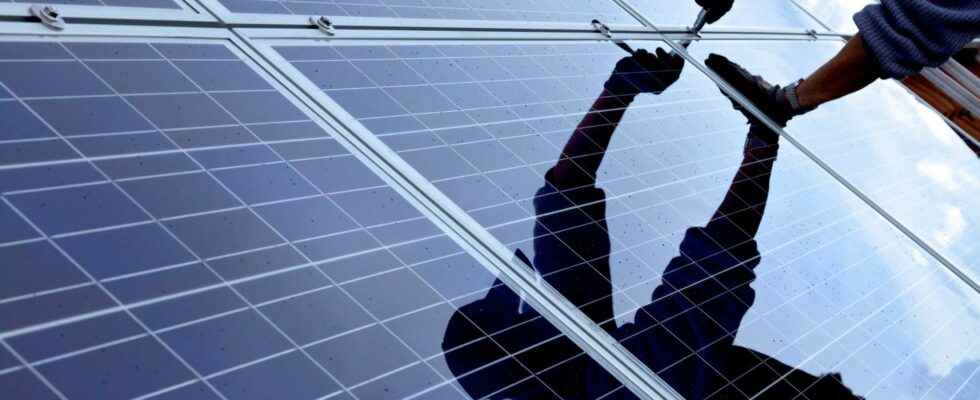Would you like to produce your own renewable energy? Discover everything you need to know about how photovoltaic panels work!
You will also be interested
The operation of solar panels is not as complicated as it seems. In this article, we will tell you everything you need to know about how photovoltaic panels work and their advantages.
How do photovoltaic solar panels work?
Whether for large solar parks or for small self-consumption installations, the production of solar energy is on the rise. More and more households are opting for photovoltaic panel installations for a variety of reasons, ranging from energy savings to environmental responsibility. If you are considering making the switch to clean energy, you need to start by learning more about the operation of photovoltaic panels. Be accompanied by a professional like TUCOENERGIE for this type of installation.
How photovoltaic solar panels work
The operation of photovoltaic panels revolves around the photovoltaic cell who will transform sun energy in electricity via what is called the effect photoelectric.
Photovoltaic generation is precisely the property of certain materials called semiconductorsas the siliconto generate electric current when subjected to a source of light.
This occurs when radiation from sunwhich contains photonsrelease the electrons present in the material semiconductor, creating the desired flow of electrical energy. A solar or photovoltaic module is made up of a series of photovoltaic cellsthese are layers of silicon “doped” with phosphorus and boronwhich, thanks to solar radiation, generate a direct current. Then a small box, called invertertransforms direct current into alternating current so that it can be used in your home.
The solar energy will therefore be transformed into an electric current that can be used in your home. In other words, via photovoltaic panels, you produce your own energy that you will then consume to power your home all day long, every day of the year. In addition, be aware that the voltage supplied by the modules is always regular, but that the quantity of electricity produced depends on the light intensity. Thus the performance of solar panels depends on the amount of solar energy they receive, which will not be the same depending on the orientation, the inclination of the panels or the rate of sunshine.
Calculating the power of a photovoltaic panel
To understand how solar panels work, it is also important to know how the power of a module is calculated. Indeed, this data quite simply makes it possible to determine the needs and the electrical production capacity of your photovoltaic installation. The power of one solar panel corresponds to what is called “production capacity”, expressed in kilowatt-peak (kWp), in other words the maximum electrical power that the panel can provide under optimal conditions. It is therefore essential to be well informed and choose panels whose power corresponds to your real needs. Finally, the last element to take into account: the yield, which is nothing other than the ratio between the quantity of solar energy that the panel receives and the quantity of energy that it produces, it is a rate theoretical indicated by the manufacturer, which is between 8 and 22% and depends on multiple variables such as the type of module for example.
What is the interest of photovoltaic solar panels?
Here are some good reasons why investing in solar panels is a good option.
- To save money
The average solar installation costs between 9,000 and 25,000 euros. If that sounds too expensive, think about it: people save on average between 30% and 60% of their electric energy bill. Your solar installation will therefore be amortized in just a few years and thereafter you can continue to save and lower your monthly electricity bill. Photovoltaic panels therefore have the advantage of reducing your energy consumption at home consistently. But that’s not all, as part of a self-consumption project (consuming what you produce) you can also resell any surplus to an electricity supplier, at an advantageous rate set by the State. In addition to saving money, you can generate an interesting added value.
- To have an independent household
By switching to solar energy, your home will be much more economical because during the day you will be using electricity from your solar panels. However, it should not be forgotten that a project of total energy independence is not technically possible at the present time. Thus, even if you optimize your consumption as much as possible, it will still be necessary to be connected to the public electricity network.
- To reduce its emissions polluting
A single installation of solar panels offsets 178 tons of carbon dioxide over 30 years, which is equivalent to planting 10 tree-lined football pitches. Instead of burning fuels fossils that hurt our planet little by little, solar energy on the contrary does not harm the environment. It is a clean, decarbonized, local energy, which contributes to reducing our dependence on fossil fuels and contributes to sustainable development.
Solar energy being an energy renewable and free, you will become more self-sufficient in terms of energy. Indeed, you will depend less on energy suppliers whose prices are higher and higher from year to year.
Article produced in partnership with TUCOENERGIE
Interested in what you just read?
